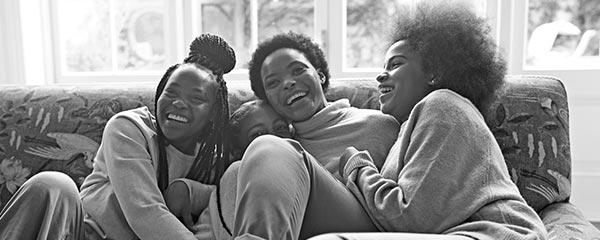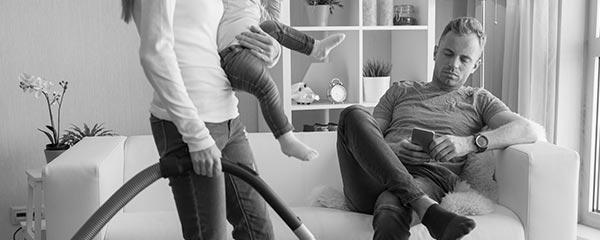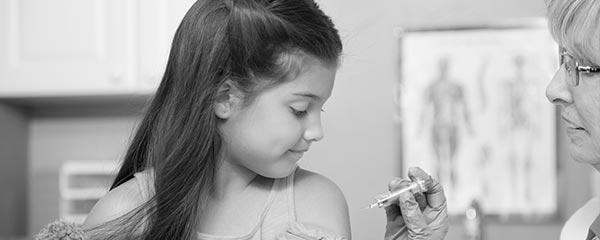Story Highlights
- Percentage who are worried climbs 24 percentage points since February
- Confidence in government's ability to handle outbreak drops 16 points
- Outlook on the disease's impact on global economy increasingly negative
WASHINGTON, D.C. -- In the past month, as the coronavirus moved from an outbreak mainly limited to China to a worldwide pandemic, the percentage of Americans worried about being exposed to the virus has surged, while their confidence in the government to handle an outbreak has declined sharply. And the percentage expecting significant harm to the world economy has more than doubled.
Six in 10 Americans are now "very" (26%) or "somewhat worried" (34%) that they or someone in their family will be exposed to the virus, up from 36% very or somewhat worried in the initial Feb. 3-16 poll. Increased worry is apparent among all major subgroups -- though much more so among Democrats and less so among Republicans.
| Feb. 3-16, 2020 | Mar. 2-13, 2020 | Change | |||||||||||||||||||||||||||||||||||||||||||||||||||||||||||||||||||||||||||||||||||||||||||||||||
|---|---|---|---|---|---|---|---|---|---|---|---|---|---|---|---|---|---|---|---|---|---|---|---|---|---|---|---|---|---|---|---|---|---|---|---|---|---|---|---|---|---|---|---|---|---|---|---|---|---|---|---|---|---|---|---|---|---|---|---|---|---|---|---|---|---|---|---|---|---|---|---|---|---|---|---|---|---|---|---|---|---|---|---|---|---|---|---|---|---|---|---|---|---|---|---|---|---|---|---|
| % Very/Somewhat worried | % Very/Somewhat worried | (pct. pts.) | |||||||||||||||||||||||||||||||||||||||||||||||||||||||||||||||||||||||||||||||||||||||||||||||||
| National adults | 36 | 60 | +24 | ||||||||||||||||||||||||||||||||||||||||||||||||||||||||||||||||||||||||||||||||||||||||||||||||
| Republicans | 30 | 42 | +12 | ||||||||||||||||||||||||||||||||||||||||||||||||||||||||||||||||||||||||||||||||||||||||||||||||
| Independents | 44 | 64 | +20 | ||||||||||||||||||||||||||||||||||||||||||||||||||||||||||||||||||||||||||||||||||||||||||||||||
| Democrats | 26 | 73 | +47 | ||||||||||||||||||||||||||||||||||||||||||||||||||||||||||||||||||||||||||||||||||||||||||||||||
| Men | 30 | 58 | +28 | ||||||||||||||||||||||||||||||||||||||||||||||||||||||||||||||||||||||||||||||||||||||||||||||||
| Women | 40 | 62 | +22 | ||||||||||||||||||||||||||||||||||||||||||||||||||||||||||||||||||||||||||||||||||||||||||||||||
| Whites | 29 | 54 | +25 | ||||||||||||||||||||||||||||||||||||||||||||||||||||||||||||||||||||||||||||||||||||||||||||||||
| Nonwhites | 49 | 70 | +21 | ||||||||||||||||||||||||||||||||||||||||||||||||||||||||||||||||||||||||||||||||||||||||||||||||
| 18-29 | 40 | 54 | +14 | ||||||||||||||||||||||||||||||||||||||||||||||||||||||||||||||||||||||||||||||||||||||||||||||||
| 30-49 | 37 | 60 | +23 | ||||||||||||||||||||||||||||||||||||||||||||||||||||||||||||||||||||||||||||||||||||||||||||||||
| 50-64 | 35 | 64 | +29 | ||||||||||||||||||||||||||||||||||||||||||||||||||||||||||||||||||||||||||||||||||||||||||||||||
| 65+ | 30 | 59 | +29 | ||||||||||||||||||||||||||||||||||||||||||||||||||||||||||||||||||||||||||||||||||||||||||||||||
| Household income $100k+ | 25 | 54 | +29 | ||||||||||||||||||||||||||||||||||||||||||||||||||||||||||||||||||||||||||||||||||||||||||||||||
| Household income $40k-99.9k | 34 | 60 | +26 | ||||||||||||||||||||||||||||||||||||||||||||||||||||||||||||||||||||||||||||||||||||||||||||||||
| Household income less than $40k | 43 | 66 | +23 | ||||||||||||||||||||||||||||||||||||||||||||||||||||||||||||||||||||||||||||||||||||||||||||||||
| February question wording: "As you may know, many people in Asia have recently died…" | |||||||||||||||||||||||||||||||||||||||||||||||||||||||||||||||||||||||||||||||||||||||||||||||||||
| Â鶹´«Ã½AV | |||||||||||||||||||||||||||||||||||||||||||||||||||||||||||||||||||||||||||||||||||||||||||||||||||
This is now a much higher level of worry than Â鶹´«Ã½AV has measured during previous health scares, including SARS, West Nile virus and anthrax.
Much has transpired in between Â鶹´«Ã½AV's first poll on the subject -- which was conducted just after the first positive case of coronavirus was confirmed in the U.S. -- and its latest survey conducted Mar. 2-13, just after the first reported coronavirus-related deaths in the U.S. on Feb. 29. During the latest polling period, President Donald Trump declared a national emergency and announced a suspension of travel from Europe in an Oval Office address to the nation. Meanwhile, the World Health Organization declared that the disease is now a pandemic.
Among subgroups, political party identification reflects the starkest differences in levels of worry about coronavirus exposure. Democrats (73%) are the most worried of any group, and their level of worry has increased the most out of any group. Meanwhile, less than half of Republicans (42%) report having this level of concern -- the lowest of any group Â鶹´«Ã½AV measured. Republicans' worries have increased by the smallest amount between the two polls. The two groups were about equally likely to be worried in February.
Other notable findings include:
-
While women were previously more worried about exposure than men, this gap has narrowed in the latest update (58% among men and 62% among women).
-
A majority of U.S. whites (54%) now report being worried, but nonwhites (70%) remain much more worried.
-
Worries have increased among all age groups, but less so among adults under the age of 30.
-
Wealth remains a big factor in worries about coronavirus: adults in low-income households (66%) remain more concerned than most other groups while those in higher-income households (54%) are on the lower end of levels of concern among groups.
Confidence in Government's Ability to Handle Outbreak Drops 16 Points
Last month, more than three in four Americans expressed confidence in the government to handle an outbreak of coronavirus, reflecting a higher level of confidence than Â鶹´«Ã½AV has found for the government's ability to handle previous health scares.
But this level of confidence in the government's ability has dropped substantially, to the current level of 61% of Americans saying they are "very" (24%) or "somewhat confident" (37%). The overall drop reflects large decreases in confidence among independents and particularly Democrats. Now, less than half of Democrats express confidence in the government's ability to handle an outbreak.
Meanwhile, Republicans' confidence in the government's ability remains as high as it was in February, with nearly nine in 10 saying they are very or somewhat confident.
| Feb. 3-16, 2020 | Mar. 2-13, 2020 | Change | |||||||||||||||||||||||||||||||||||||||||||||||||||||||||||||||||||||||||||||||||||||||||||||||||
|---|---|---|---|---|---|---|---|---|---|---|---|---|---|---|---|---|---|---|---|---|---|---|---|---|---|---|---|---|---|---|---|---|---|---|---|---|---|---|---|---|---|---|---|---|---|---|---|---|---|---|---|---|---|---|---|---|---|---|---|---|---|---|---|---|---|---|---|---|---|---|---|---|---|---|---|---|---|---|---|---|---|---|---|---|---|---|---|---|---|---|---|---|---|---|---|---|---|---|---|
| % Very/Somewhat confident | % Very/Somewhat confident | (pct. pts.) | |||||||||||||||||||||||||||||||||||||||||||||||||||||||||||||||||||||||||||||||||||||||||||||||||
| National adults | 77 | 61 | -16 | ||||||||||||||||||||||||||||||||||||||||||||||||||||||||||||||||||||||||||||||||||||||||||||||||
| Republicans | 86 | 85 | -1 | ||||||||||||||||||||||||||||||||||||||||||||||||||||||||||||||||||||||||||||||||||||||||||||||||
| Independents | 71 | 58 | -13 | ||||||||||||||||||||||||||||||||||||||||||||||||||||||||||||||||||||||||||||||||||||||||||||||||
| Democrats | 75 | 43 | -32 | ||||||||||||||||||||||||||||||||||||||||||||||||||||||||||||||||||||||||||||||||||||||||||||||||
| Â鶹´«Ã½AV | |||||||||||||||||||||||||||||||||||||||||||||||||||||||||||||||||||||||||||||||||||||||||||||||||||
As a result of the shifts in opinion, Americans' confidence to handle an outbreak of coronavirus is on par with their confidence in the government to handle prior public health crises.
Americans More Likely to See Dire Effect on World Economy
The combined 86% of Americans who believe that coronavirus will have a "very" or "somewhat negative" impact on the global economy is up sharply from the 65% Â鶹´«Ã½AV recorded in February. This includes a more than doubling of the percentage who expect the effects to be very negative, from 16% to 41%.
This increase is likely the result of the real economic events Americans are watching unfold. The Dow Jones Industrial Average, for example, dropped several thousands of points between mid-February and mid-March and remains volatile as of publishing time.
| Very negative effect | Somewhat negative effect | Not a negative effect | |||||||||||||||||||||||||||||||||||||||||||||||||||||||||||||||||||||||||||||||||||||||||||||||||
|---|---|---|---|---|---|---|---|---|---|---|---|---|---|---|---|---|---|---|---|---|---|---|---|---|---|---|---|---|---|---|---|---|---|---|---|---|---|---|---|---|---|---|---|---|---|---|---|---|---|---|---|---|---|---|---|---|---|---|---|---|---|---|---|---|---|---|---|---|---|---|---|---|---|---|---|---|---|---|---|---|---|---|---|---|---|---|---|---|---|---|---|---|---|---|---|---|---|---|---|
| % | % | % | |||||||||||||||||||||||||||||||||||||||||||||||||||||||||||||||||||||||||||||||||||||||||||||||||
| Mar. 2-13, 2020 | 41 | 45 | 14 | ||||||||||||||||||||||||||||||||||||||||||||||||||||||||||||||||||||||||||||||||||||||||||||||||
| Feb. 3-16, 2020 | 16 | 49 | 34 | ||||||||||||||||||||||||||||||||||||||||||||||||||||||||||||||||||||||||||||||||||||||||||||||||
| Â鶹´«Ã½AV | |||||||||||||||||||||||||||||||||||||||||||||||||||||||||||||||||||||||||||||||||||||||||||||||||||
Bottom Line
Americans' heightened concern about the coronavirus is expected, given the rapidly unfolding situation they are witnessing on the news, at schools and workplaces, in their investments, and at their local grocery stores. The disease's fast spread and the accompanying fallout have wreaked havoc on many Americans' lives.
Most trust their government to handle the situation, but this confidence has faded as precious time has passed. One thing, so far, has been immune to the coronavirus: U.S. political polarization. Republicans are twice as likely as Democrats to express faith in the government's outbreak response and, perhaps, as a result, much less likely to say they are worried about being exposed to the disease.
View complete question responses and trends (PDF download).
Learn more about how the works.




